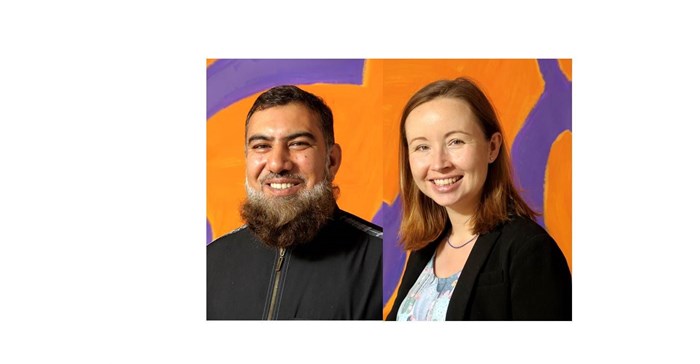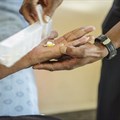
Dr Mohammed Rassool, deputy director, and Dr Pauline Howell, senior medical officer, Clinical HIV Research Unit
South Africa has the sixth-highest tuberculosis (TB) burden worldwide. According to TBFacts.org, 58 000 people in the country died of the disease in 2019, and in the same year, the World Health Organisation estimated a TB incidence rate for SA of 615 per 100,000 people.
While treatment and care of all trial participants continued, enrollment for clinical studies was put on hold and fewer patients came forward to participate in clinical studies.
The CHRU's goal is to end morbidity and mortality as well as TB disease, through enrolling participants into clinical trials to test safer, shorter and more tolerable regimens that inform treatment guidelines and standards of care. Together with the international research community, the unit is involved with several clinical trials to improve cure rates which we are achieving by testing shortened treatments and finding ways to minimise the side-effects of TB drugs. Our clinical studies cover all types of TB from drug sensitive (DS-TB) to the most difficult form to treat: extensively drug resistant TB.
Violet Chihota 23 Mar 2021 These studies usually involve adult participants, but the unit is also dosing and safety protocols for new TB drugs in pregnant women and children. CHRU is also involved in studies to treat TB infection (as opposed to TB disease), referred to as TB preventive treatment. Studies to shorten the treatment for normal TB are also coming in.
Research benefits to TB patients
TB research has delivered significant benefits for patients, clinicians and the health system. There is ongoing work that is proving successful in further reducing treatment duration for DS-TB.
Prior to 2016, the treatment of all DR-TB took 20 months of medicines which involved daily painful injections and a significant risk of permanent hearing loss. It was not surprising that only 50% of these patients were successfully treated. Major strides have been made in lessening side effects and treatment timeframes for DR-TB.
Research has produced a safer, more tolerable and effective all-oral regimen. South Africa has been lauded internationally for its inclusion of bedaquiline - the first new medication registered in over 50 years for the treatment of rifampicin resistance (RR) TB - in the national guidelines within three years of registration. Providing bedaquiline to South Africans with RR-TB has halved the mortality of patients with DR-TB in South Africa.
There are still questions that research has not answered, yet funding for research is limited. The fact remains that TB is infectious and can be fatal. It will be with us long after the Covid-19 pandemic abates.
TB-HIV coinfection
SA has a TB-HIV coinfection rate of over 60%. HIV-infected individuals, especially those with low CD4 counts, have a far higher risk of developing TB than people who don’t have HIV. We are working on several studies to address this, and are therefore particularly interested in TB treatment outcomes based on HIV status and interactions with antiretroviral treatment (ART).
Stigma
Adherence to ART is often linked to socioeconomic issues, and this extends to adherence to treatment. The challenge is social stigma: those who hide their disease fearing discrimination. This is one of the main causes of delayed diagnosis. Crowded living spaces drive both TB infection and social stigma. People living in informal settlements, prisons, mines or orphanages are especially affected. To end TB, we need to end the stigma and increase social awareness and tolerance of the disease. CHRU’s community outreach teams work hard to deal with this.
Recent TB research outcomes
The final results for the Nix-TB trial of which the CHRU was a part were reported at the annual Conference on Retroviruses and Opportunistic Infections held earlier this month. It was revealed that nine out of 10 participants with DR-TB have durable cure that extends to two years after finishing treatment.
Known as the BPaL (bedaquiline, pretomanid and linezolid) regimen, 109 participants were enrolled for treatment with a three-drug, six-month, all-oral regimen which is significantly shorter, more efficacious and tolerable than conventional treatment. Side effects were manageable and resolved in the majority of participants.
Five different countries, including SA, are already using the regimen (either under observational research or registration) since it received US Food and Drug Administration approval in August 2019. In the world of DR-TB, that’s lightning fast.
The South African National Department of Health is now rolling out a BPaL clinical access programme for patients with highly drug-resistant forms of TB. with funding from USAid.

















































